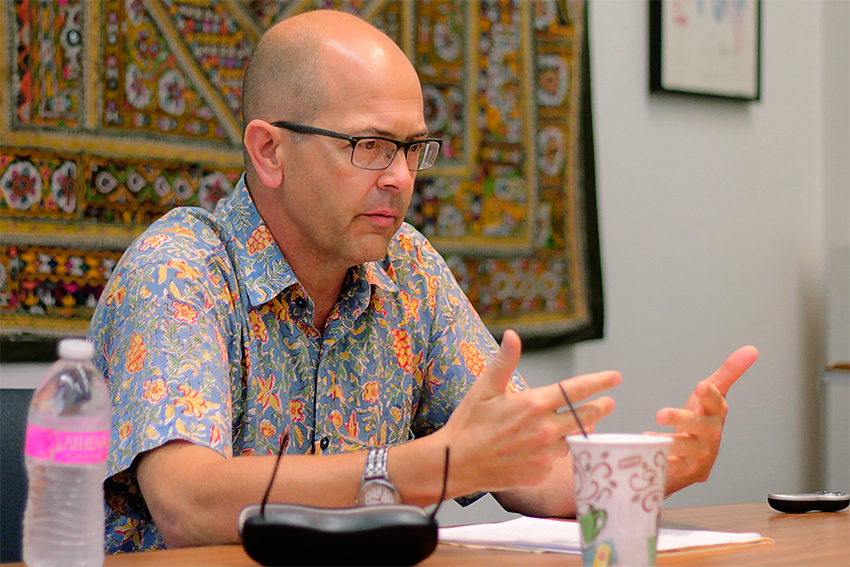Before Nepali youth attended college in the capitol city of Kathmandu in the late 1960s, most had never seen electric lights or even a wheel at their homes in the countryside, according to Mark Liechty, a professor at the University of Illinois at Chicago.
“For Nepali youth, entering Kathmandu was like entering the modern world,” Liechty said.
In his lecture on Thursday, “Modernist Discontent and Rebellion: Western and Nepali Countercultural Youth in Hippie-era Kathmandu,” part of the Fall South Asia Seminar Series held at UT, Liechtry spoke about how Nepal’s youth entered the avant-garde scene infested with art, drugs and rock music in the late 1960s.
Liechty, who lived in Nepal in the 1960s, said during this era, tourism in Nepal increased while the age of these tourists decreased, with around 75 percent of foreign tourists between the ages of 20 and 30. Liechty said this demographic embraced modernity to an extreme, taking advantage of Nepal’s relaxed drug regulations of the time.
“Nepal had its own simultaneous youth counter-culture that emerges in parallel with this more well-known phenomenon in the West,” Liechty said. “Both of them are emerging out of [a shared] global context, [so] it’s not a matter of mimicry.”
Heather Hindman, associate professor of Asian studies, hosted the event. Hindman said she found the independence of the youth counter-culture in Nepal important because it traced a unique local history instead of simply being a derivative of the West.
“I think one of the advantages of the South Asian lecture series is that we draw on themes,” Hindman said. “With the theme of youth and mobility, we see how different disciplines and areas of the world approach the issue of young people and how they navigate their being in the world.”
Regardless of how the hippie era of Kathmandu is interpreted, Hina Acharya, a global policy studies graduate student, said the time and culture is fascinating.
“I was born in Kathmandu and my parents grew up there in the ’60s, and they have a very negative connotation of the era,” Acharya said. “It was interesting to see a different view of what happened at the time.”





















